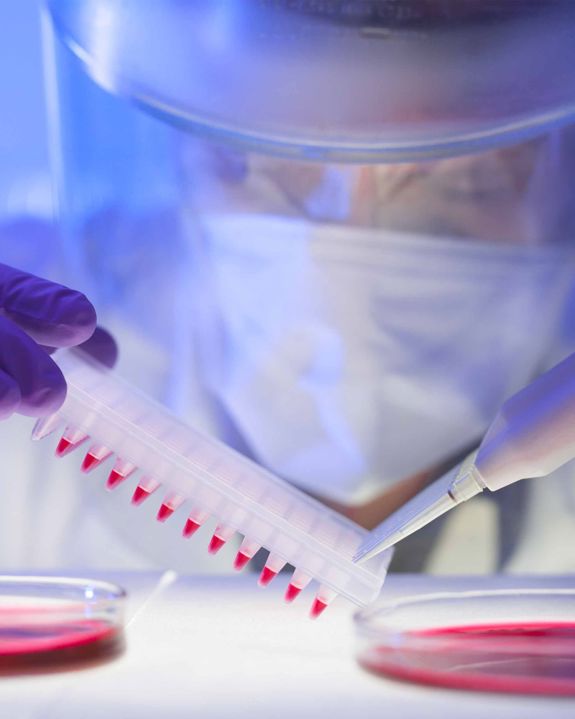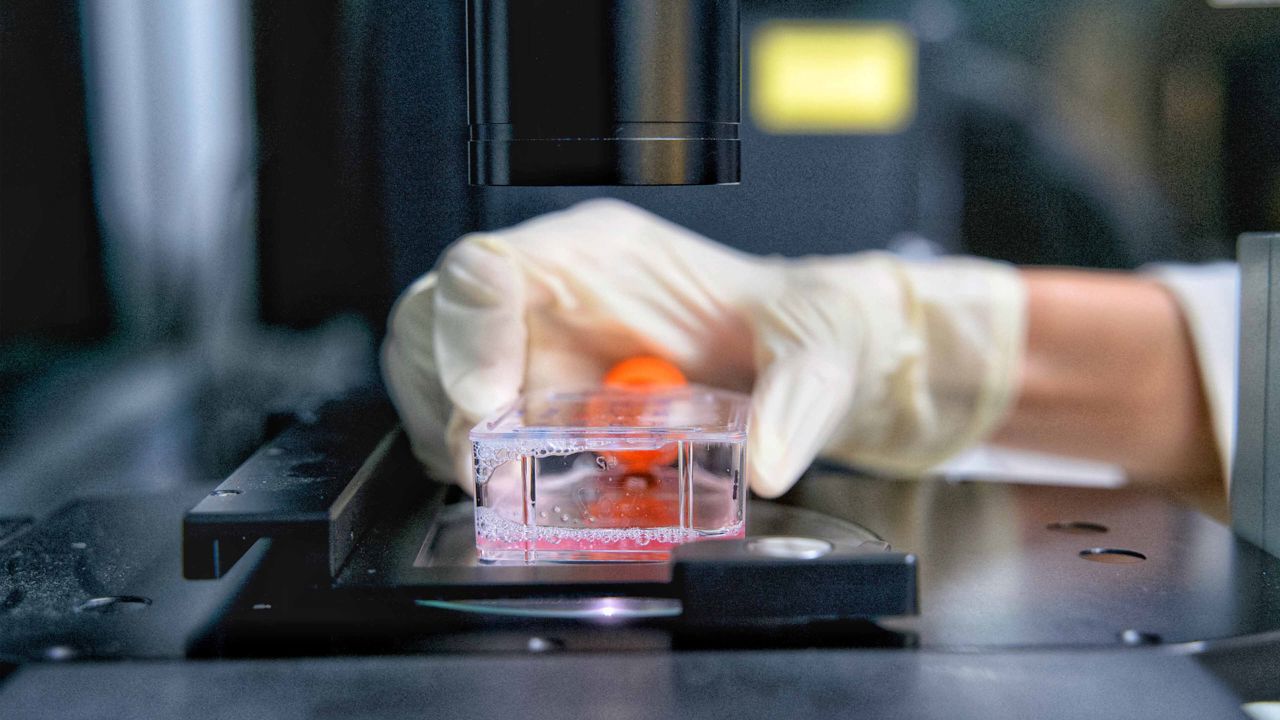ADC Design Strategy

Iksuda's goal is to design & deliver better ADCs which address unmet clinical needs
We design our ADCs to meet our criteria for clinically meaningful differentiation over on-market comparators, including enhanced TI and wider clinical utility. We want to advance new therapies for cancers of high unmet need.
A toolbox of ADC assets is critical to design optimal ADCs for any given target. Iksuda is essentially agnostic to platform choices. We believe that optimal ADCs cannot be achieved through a single platform approach. We utilize in-house and in-licensed platforms, incorporating the best and most suitable in each ADC construct.
Iksuda's ADC toolbox
A multi-platform approach is fundamental to the design of optimal ADCs for any given target
We continue to expand our toolbox of ADC asset platforms to ensure that we can design optimal ADCs for any given target.
All our ADCs benefit from tumor-selective payload activation and release for added safety, delivered today via beta-glucuronide linkers. This approach is now clinically validated in our IKS014 ADC program.
We are continually optimizing linker-payload formats for intra-tumoral delivery, and expanding our payload options to ensure coverage of all known ADC classes as well as the introduction of powerful new mechanisms.
All ADC programs include stable bioconjugation as a prerequisite, whether this be through our proprietary PermaLink technology or the ConjuAll platform. PermaLink is suitable for wild-type antibodies and compatible with all linkers and payloads. It offers a simple & scalable solution for ADC stability.
| Antibodies | Fit for purpose, with optimal ADC characteristics Sourced through proprietary discovery, engineering enhancement or in-license |
| Bioconjugation | Stable conjugation for wild type or site-specific antibodies Using Iksuda's proprietary PermaLink or LCB's ConjuAll technology |
| Linkers | Highly advanced tumour-selective payload activation & release for improved safety Prodrug linker technologies are included in all Iksuda's ADC programs |
| Payloads |
Portfolio of advanced novel ADC payloads with tumour-selective activation chemistries Tumour-selective activation also allows enables use of 'traditional' ADC payloads, where ADC differentiation relates to Iksuda's multi-platform design principles. |
Making informed decisions in ADC design
All our ADCs are based on tumor-selective activation of linker/ payload and stable bioconjugation for added safety.
We strive to improve and enhance all platforms to deliver the most relevant payload MOA safely and selectively to the cancer cell and include maximum impact.
Payload MOA defines an ADCs toxicity profile and is fundamental to the tumor sensitivity profile. It is important to selection the right MOA and potency for the targeted tumor, and balancing this against a target's expression profile.
Similarly, target choices help to characteristics toxicity risks, payload MOA and potency. Clearly, they also determine the indication range of the associated ADC.
Relevant clinical indications define potential payload MOA options for testing, the clinical development strategy and selection of relevant benchmarks.
To achieve our aims, Iksuda has built - and continues to expand - a suite of ADC assets.
Experienced-based ADC design for clinically meaningful differentiation
If the lead candidate achieves or exceeds our benchmark TI, established to ensure clinical meaningful differentiation vs in-clinic or on-market comparators, we progress through IND enabling studies. In making our decisions, we avoid reliance on dogmatic assumptions and integrate existing data on clinical success and preclinical studies.

Enhancing probability of success
Iksuda’s pipeline prioritization is based on the vital triad for ADC success, with probability of success being defined by the relationship of this triad:
- Payload MOA;
- Target properties;
- Relevant clinical indications
New technology validation is conducted through comparative clinical benchmark studies to define differentiation index. After identification of suitable clinical benchmarks with evidence of on-target clinical activity, our team decides whether to explore the same target for the same indication.
We then compare new technology options designed to overcome the identified limitations of the selected clinical benchmarks in representative preclinical models.
For each program, we establish criteria for design success, including:
- Does the ADC need to be more powerful?
- Do we need to demonstrate an improved toxicity profile?
- Should we ensure broader utility through a wider clinical indication profile?
Iksuda only progresses ADC programs which meet our design criteria into active development. We apply validated new technologies to novel targets for improved probability of clinical success, drawing on validation of the technology from comparative analysis with known targets.

When considering new technologies, Iksuda again works to defined criteria. For example, for payload related decisions, we assess whether:
- A novel payload MoA will drive differentiated sensitivity/resistance profiles.
- Improved selectivity for activation & release improves efficacy and/ or decreases toxicity.
- Decreased off-target effects for improved on-target dependence.
- Enhanced potency increases sensitivity or power.
- Improved biophysical properties improves ADC design flexibility.
Iksuda continually explores new, enhanced innovation programs, investing in next generation efforts for enhanced differentiation in a continuous effort to drive best-in-class technologies.
Contact us about partnerships for ADC design & development

Ian Evetts
